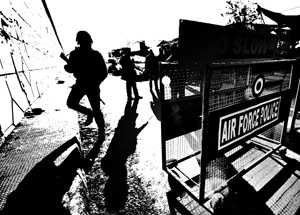
NEW DELHI: It was the speed and spontaneity with which the Indian Army launched its attacks that took the enemy by surprise, leading to their victory in the 1999 Kargil war, says Lieutenant General Mohinder Puri. He headed the 8 Mountain Division.
Gripping accounts of valour and fortitude from the battle front of the war between India and Pakistan have been recollected in a new book penned by Puri.
The book titled ‘Kargil: Turning the Tide’, which was launched here on Monday evening, is a first-hand narrative of the operations of 8 Mountain Division, which was tasked to evict the enemy from the Drass-Mushkoh Sector during ‘Operation Vijay’.
“We surprised the enemy with the speed and ferocity of our movement. It was the speed with which we conducted the operations and took them totally by surprise, this was one of the reasons why we succeeded in evicting the enemy,” he said.
Recounting one such incident, the then Major-General Puri said how after several failed attempts to capture the pivotal Tololing peak, he had asked his men to attack again the next evening, but by the time he reached his headquarters, India had already conquered the strategic feature.
The Tololing, a dominant position overlooking Srinagar- Leh Highway (NH-1D), was so strategic that after it was conquered it was only a matter of six days for Indian troops to notch up a string of successes by evicting well-entrenched intruders in four nearby outposts.
He said, Colonel MB Ravindranath, Commanding Officer of the 2 Rajputana Rifles, radioed him, camping some 20-km away and said in a terse message, “Sir, I’m on Tololing top.”
“After I was informed that we have not been able to capture Tololing, I just asked them to consolidate and in the evening I said, ‘have a go.’ By the time I reached the headquarters, I was told that we have captured Tololing.I spoke to Ravi and when I asked him what had happened he said he just saw a window of opportunity and there he launched the attack and captured the feature which was until then with the enemy,” Puri said.
Puri’s division was responsible for spearheading the Army’s offensive in the Kargil sector which restored the sanctity of the Line of Control by capturing Tololing, Tiger Hill and Point 4875.General (retd) VP Malik, who himself has authored a book titled “Kargil – From Surprise To Victory” in 2006 on the same subject inaugurated the event at Manekshaw Centre here.
HIGHLIGHTS
“Lots of books have been written about the Kargil War and most of them are hearsay. There are only two authentic books I can mention, one is General Puri’s and I will take credit for the second one.
“While I have dealt with the war at a macro level, General Puri’s book talks about the several battles fought. After all, there is no war without these battles,” Malik said.

































































































































